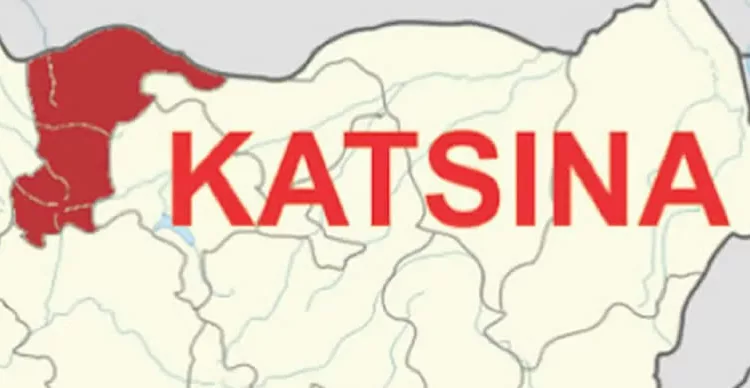The gruesome murder of more than 40 residents of Unguwan Mantau community in Malumfashi local government of Katsina State, at the mosque during fajr (early morning prayers), by a renegade band of evil men, has further underscored the enormity of the insecurity currently rocking the nation.
According to residents of this sleepy community, the attackers, who were well-armed and riding on motorcycles, struck in the early hours of the ill-fated day to wreak havoc, which has left many children orphaned, women widowed, and families completely devastated. The latest killings make one wonder if gruesome murder by terrorists is not gradually becoming the new normal.
Katsina state government said the attack was a reprisal one that occurred two days after residents of the community laid an ambush against the bandits and killed many of them, rescued kidnapped victims taken from Ruwan Sanyi village, seized three motorcycles, and two AK-47 rifles.
However, before the deadly attack and murder in the mosque, residents of the community were said to have noticed suspicious movement, which they duly informed the security operatives. Soldiers arrived in the community to provide security, but later withdrew. The bandits attacked the next day after the soldiers’ withdrawal. How did the bandits know of the soldiers’ withdrawal?
Expectedly, shortly after the attacks, the Katsina State governor, who is currently on vacation, sent a delegation to console the victims’ families with the assurance that justice would be served for the killers. Oftentimes, neither the killers nor their collaborators get to be served justice. We continue with life as usual until another sad incident occurs. How long will the state wait for another incident to happen?
These terrorists were aided by some unscrupulous persons among the communities, the security circles, politicians and traditional rulers, most of whom serve as informants.
These killings, like the series of those before it, leave room for so many questions. How could scores of persons, riding on a motorcycle with guns, move undetected? What sort of intelligence do the security operatives have about these terrorists?
We recall that killings, displacement of residents, raping and mass abduction for ransoms have gradually become the new normal for residents of most communities in the worst-hit local government areas, including Safana, Batsari, Jibia, Malumfashi, Kankara, Faskari and Danmusa, all in Katsina state.
In these council areas, communities have been deserted, farming halted, and residents seeking refuge in areas far flung from their original abode, due to the sustained attacks from terrorists who are operating from neighbouring forests.
It appears that the Katsina state government’s efforts to address this menace, backed by security measures provided by the federal government, are grossly inadequate.
Although the military and other security operatives have deployed personnel to most troubled spots and the state government recruited able-bodied youth as members of its Community Watch Corps to help combat the raging insecurity, these efforts are a little too small.
The nation is dealing with an organised crime perpetrated by persons who have seen cattle rustling, abduction for ransom and taxing of farming communities as steady sources of revenue.
Bandits have become so daring that they brazenly impose taxes on communities as a condition for farming or crop harvest. Curiously, these taxes are paid. Because of the limited presence of security operatives in most of these rural communities, bandits hold sway.
Fundamentally, despondency looms large on the horizon. The federal government, which has overriding control over security matters, appears overwhelmed or not too serious about addressing the national malaise of insecurity. The communities which are being attacked daily have no solution and have completely lost hope.
It is clear that current strategies for combating this menace have not yielded the desired result. They have failed. The strategy needs to be changed, pure and simple.
In our opinion, tackling entrenched insecurity like the type witnessed in Katsina, Zamfara, Sokoto, and other States of the Northwest requires a comprehensive approach, including addressing poverty, which has remained one of the key drivers.
However, the greatest nut to crack in combating banditry and other crimes in these areas is to tackle the danger posed by informants and others who aid this criminality in the affected communities. The government must address the factors that keep banditry and other related crimes profitable in these areas.
If the truth must be told, insecurity has become a high-stakes industry with a dangerous political angle that is fast becoming intractable. We are persuaded to believe that the security agencies know what is going on, but they lack the will to do what is necessary to bring an end to this scourge that is threatening to consume society itself.





